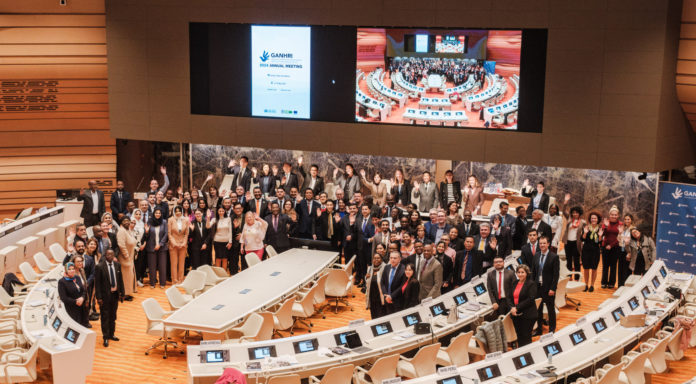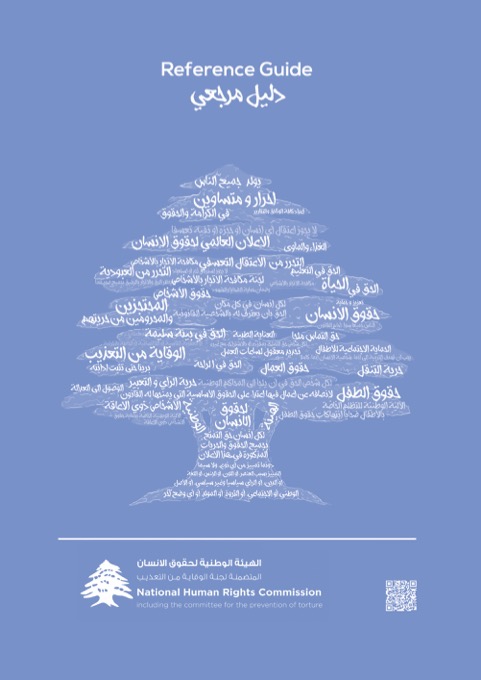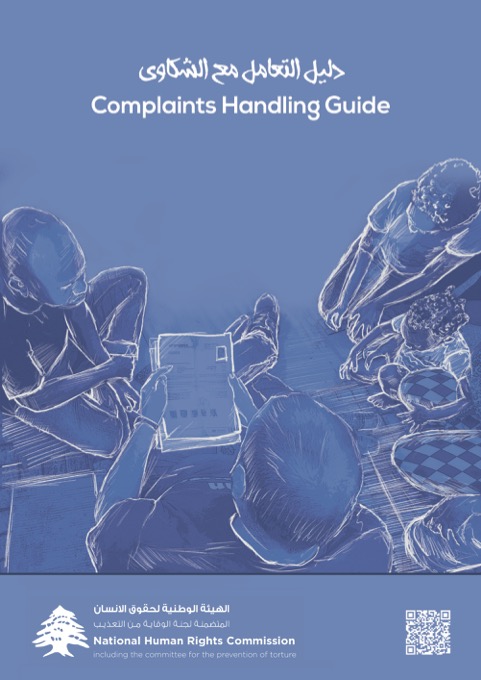هذه المقالة متاحة أيضًا بـ: العربية (Arabic)
National human rights institutions (NHRIs) from all global regions have agreed to a comprehensive plan of action to address torture that places the prevention of torture at the heart of their collective efforts.
The GANHRI 2024 Annual Meeting was held on 6-7-8 May in the UN Palais des Nations in Geneva, Switzerland.
The NHRI’s participation reflects its commitment to supporting fundamental human rights, ensuring equality and justice without discrimination, and aligning with global human rights goals.

The Annual Meeting is the regular gathering of NHRIs from all over the world. It takes place in Geneva, normally in conjunction with a session of the UN Human Rights Council. GANHRI organizes the meeting in collaboration with the Office of the United Nations High Commissioner for Human Rights (OHCHR).
The Meeting aims to exchange expertise and develop effective strategies to enhance human rights standards through regional network meetings and the General Assembly. This year’s Meeting features a “Business and Human Rights Conference: The Role and Experiences of NHRIs.”
This Annual Meeting offers an opportunity for GANHRI members and partners from across all regions to network, exchange experiences, and learn from each other, reviewing our work and deciding collectively on the next steps moving forward.
The GANHRI 2024 Annual Meeting reaffirmed the role of NHRis in combating and preventing torture, based on the latest outcome of the global conference, held in Copenhagen from 6-8 November 2023. The conference was co-hosted by the Global Alliance of National Human Rights Institutions, the Danish Institute for Human Rights, the Ukrainian Parliament Commissioner for Human Rights, and the Office of the United Nations High Commissioner for Human Rights.
The Kyiv-Copenhagen Declaration, adopted at the conclusion of the 14th International Conference of National Human Rights Institutions which focused on the role of NHRIs in the fight against torture and other ill-treatment, calls on NHRIs to:
- Advocate for national legal frameworks and reforms that support the prohibition and the prevention of torture and other ill-treatment, in line with international human rights law
- Contribute to the effective implementation of these legal frameworks, to bridge the gap between law and practice, including through the fight against impunity and ensuring access to justice
- Act as control mechanisms against torture, through functions related to cooperation with international and regional bodies, monitoring places of deprivation of liberty, reporting and follow-up on recommendations, and public awareness-raising activities.
The declaration looks at the different situations, including when NHRIs operate as their country’s National Preventive Mechanism (NPM) under the Optional Protocol to the Convention against Torture (OPCAT).
The Declaration recognises the vital need for NHRIs to pay particular attention to groups of persons experiencing situations of vulnerability when deprived of liberty, including women and girls, persons with disabilities, older persons, children, refugees, internally displaced persons, LGBTQI+ persons and foreign nationals, among others.
NHRIs also committed to integrating a victim-centred approach in their work, that “acknowledges the experiences of victims and survivors and the harm suffered, and which seeks redress that is responsive to their needs”.


